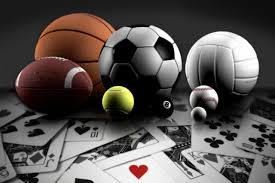
Top Tips for Poker Tournament Success
Participating in poker tournaments can be both thrilling and challenging. Whether you are a seasoned player or a newcomer to the game, knowing the right strategies and tips can significantly increase your chances of success. In this article, we will explore some of the most effective strategies to help you excel in poker tournaments. Remember, preparation and discipline are key! For additional resources and insights, check out Top tips for poker tournament https://bettafunclub.com/tr/.
1. Understand the Tournament Structure
Before participating in a poker tournament, it’s essential to grasp its structure fully. Tournaments can vary widely in terms of blinds, starting stacks, and levels. Familiarize yourself with the rules as well as the blind structure; this knowledge will allow you to make informed decisions as the tournament progresses.
2. Play Tight Early On
In the early stages of a tournament, it’s generally advisable to play tight. Many players tend to be more aggressive at the beginning, leading to numerous confrontations. By playing tight, you can minimize the risk of losing chips unnecessarily. Focus on strong hands and position instead of trying to outplay early opponents with weaker hands.
3. Be Aware of Your Position
Your position at the table can significantly impact your strategy. Being in a later position allows you to see how your opponents act before you make your decision. Take advantage of this by playing a wider range of hands when you are in late position, while remaining tight in early position.
4. Adapt Your Strategy
Every tournament consists of a diverse range of players with different skill levels and playing styles. It’s vital to observe your opponents and adapt your strategy accordingly. If a player is overly aggressive, you might want to tighten your range and let them bluff into you. Conversely, if the table is passive, you could exploit that by playing more aggressively.
5. Manage Your Bankroll Wisely
Effective bankroll management is crucial for tournament success. Always enter tournaments that fit your bankroll; this ensures that you can continue to participate even after a few losses. It’s advisable to allocate a fixed percentage of your bankroll to each tournament you enter to mitigate risks.

6. Pay Attention to ICM
The Independent Chip Model (ICM) is an important concept in tournament poker. Understanding ICM allows players to make better decisions based on their chip stack relative to the payouts. As you approach the bubble (where players are close to cashing), your strategy may need to shift to protect your stack and maximize potential earnings.
7. Know When to Make a Move
Knowing when to be aggressive is essential in tournament play. Look for opportunities when your opponents show weakness or are playing passively. Conversely, avoid high-variance plays unless you are confident they will provide good returns in the long run. Aggression can pay off, but it must be measured and strategic.
8. Stay Focused and Avoid Tilt
Mental fortitude is just as important as technical skill in poker tournaments. It’s easy to become frustrated or discouraged after a bad beat. Maintaining focus and composure is critical. If you feel yourself going on tilt, consider stepping away for a moment to collect your thoughts before returning to the table.
9. Practice Patience
In tournaments, patience is vital. You might need to wait for favorable hands or spots to accumulate chips. Rushing into pots can lead to mistakes and losing chips unnecessarily. Take your time, observe opponents, and wait for the right moments to act.
10. Keep Learning and Improving
The world of poker is constantly evolving, and successful players are those who continue to learn and adapt. Review your sessions regularly, analyze your decisions, and learn from mistakes. Watching tutorial videos, reading books, and discussing strategies with other players can immensely improve your game.
Conclusion
Poker tournaments can be daunting, but with the right mindset and strategies, you can find success and enjoyment in them. Understand the structure, adapt your game, and always practice effective bankroll management. Remember to stay focused and patient, as poker is a long-term game where improvement comes over time. Good luck at the tables!





